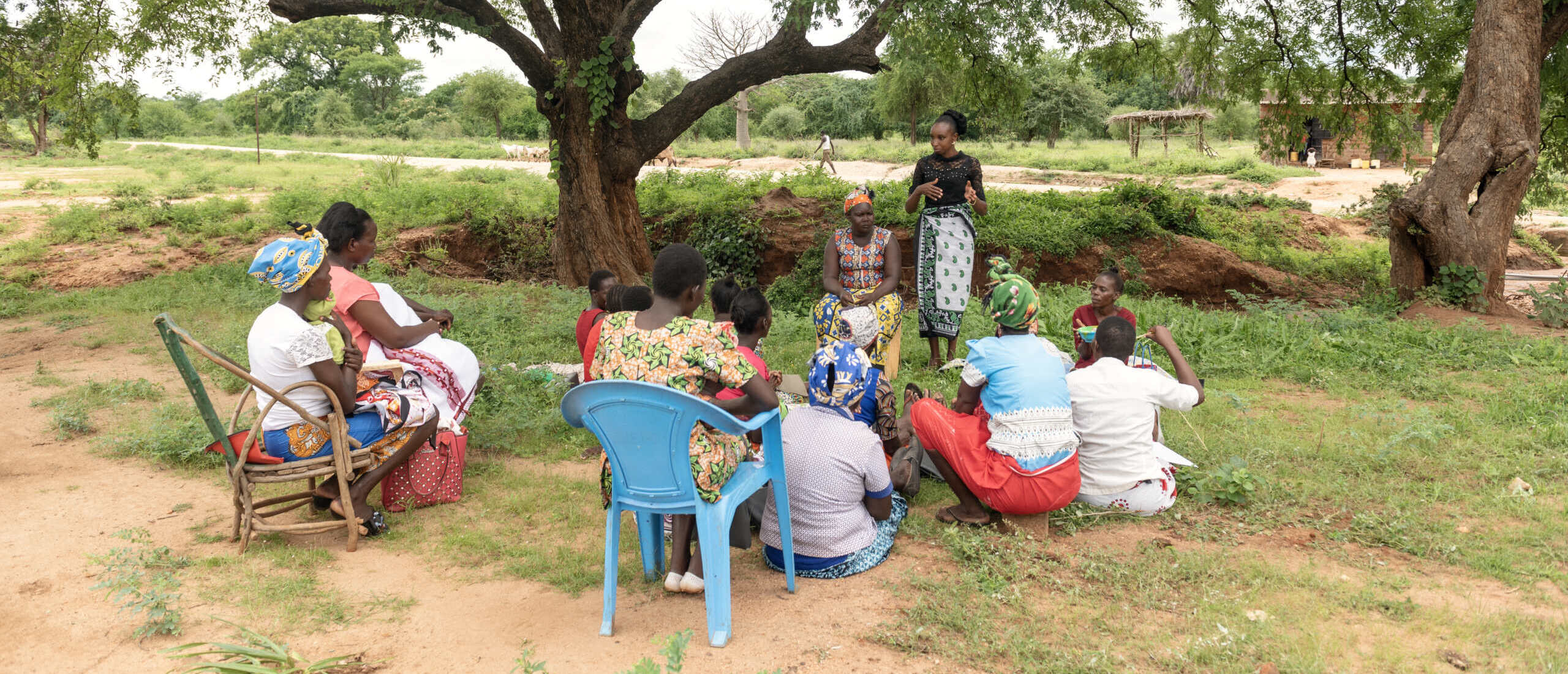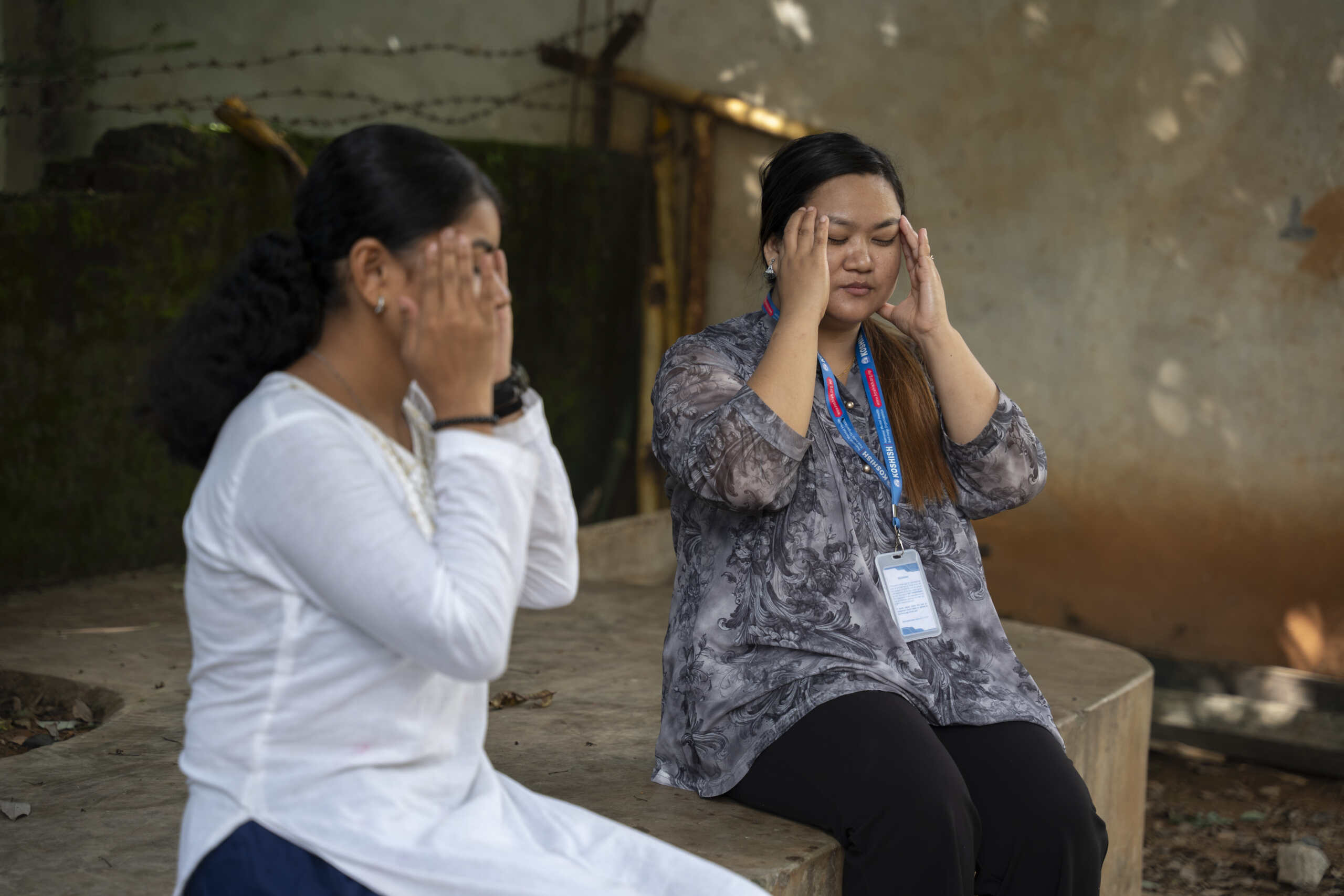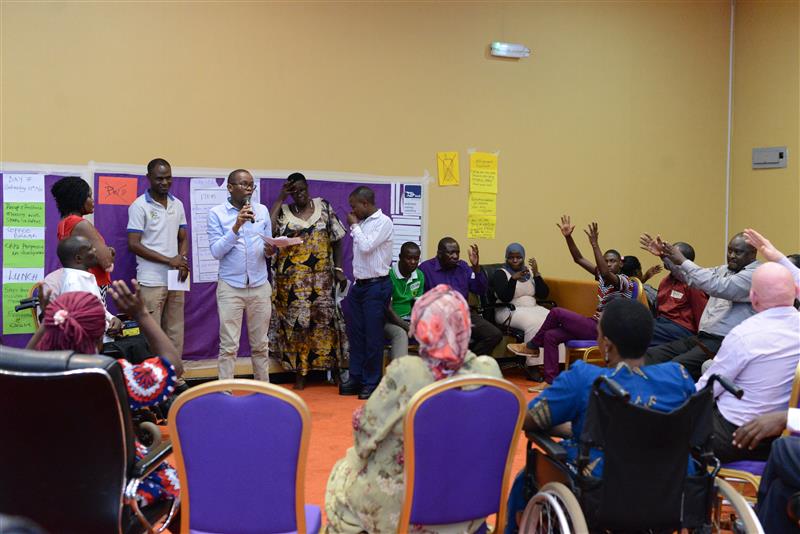Mind the Gap – understanding the current realities of meaningful engagement for OPDs in Nigeria
Blog | March 25, 2024
In his blog, David Bainbridge, Executive Director of CBM Global, discusses the disparity between the commitment towards meaningful engagement with Organisations of Persons with Disabilities (OPDs) in international cooperation and the present-day challenges faced by OPDs in Nigeria.
“Mind the Gap”
For anyone familiar with travelling on the London underground system this will be a very familiar expression – “Mind the Gap” is a safety announcement to passengers reminding them to mind the gap between the train and the platform edge when they step on and off the train. This was the expression that kept popping up in my mind during a recent visit to Nigeria, meeting with our CBM Global country team and partner organisations. I’m talking specifically about the gap between the call for meaningful engagement with Organisations of Persons with Disabilities (OPDs) in international cooperation and the current realities and experiences of OPDs in Nigeria. Allow me to elaborate…
Global Disability Summit commitments
The Global Disability Summit 2022 had as one of its themes authentic engagement with persons with disabilities and their representative organisations. This is a major priority across the sector, in line with the motto of the disability movement “Nothing about us without us”. It is in keeping with the obligations of the Convention on the Rights of Persons with Disabilities (CRPD), to actively involve persons with disabilities through their representative organisations; in policy review and development processes, in humanitarian action and so on. OPDs should be at the decision making table – but what does current reality look like?
“International cooperation policies and programs, efforts to enact commitments too rarely consider the perspectives of persons with disabilities themselves. This results in lack of relevance of interventions to the real concerns and priorities of persons with disabilities, missed opportunities or pervasive charity or medical approaches. “ GDS discussion paper on OPD engagement
The realities for OPD leaders in Nigeria
Along with Philip Ode, CBM Global’s Programme Manager in Nigeria, I had the privilege of attending a meeting with leaders of a range of national OPDs to understand their current experiences. Here’s a flavour of what they said to us:
- “The charity model in Nigeria is still prevalent. We are not charity cases but people who can contribute to society.”
- “Please don’t generalise when organisations talk about persons with disabilities, each of us should speak for ourselves.”
- “Cooperating organisations should be careful to respond to our priorities. In one project we were forced to do computer training even when we didn’t want this!”
- “National disability laws are in place but the issue is with its implementation: awareness raising is still need, people with disabilities aren’t always aware that their rights are being violated. This is especially evident in the rural areas.”
- “We need good quality disability data in order to strengthen our advocacy.”
- “We need to advocate to medical practitioners, our hospitals aren’t accessible, there is no sign language interpretation.”
“We are not charity cases but people who can contribute to society.”
CBM Global’s commitment to OPD engagement
In CBM Global we are pursuing a power shift journey, building on a long history of operating as a partner-based organisation and our CBM Global partnership principles. We want to shift the dial to ensure that our partnerships are never transactional but characterised by authentic, equal partnership based on trust and respect. We are committed to overcoming the power dynamics where the organisation bringing the funds – typically the INGO or the donor – dominates and drives the agenda, yielding greater power over the others.
For CBM Global, partnership with and accountability to the disability movement is at the heart of our mission, guided by a human rights approach. Back in 2020 we undertook a listening exercise with Organisations of Persons with Disabilities with whom we partner and this was a truly formative experience in shaping our commitments towards meaningful engagement and partnership with OPDs.
My Nigeria visit coincided with the 2 year anniversary of the Global Disability Summit 2022 and I am very encouraged by the progress we are making in delivering on our Global Disability Summit commitments.
Our commitments include steps to: promote diversity and strengthen the involvement of people from diverse backgrounds and impairments including under-represented groups facing intersectional discrimination; increase the levels of funding flowing to OPD partners including budget provisions for organisational strengthening plans that best suits their priorities and requirements and with a recognition of core running costs as a necessary component of project management. We are looking at long term organisational sustainability and effectiveness for our OPD partners which calls for more considered approaches to understanding risk and opportunity, and that recognises the wealth of experiences and capacities intrinsic to OPDs.
Our commitments also include supporting persons with disabilities and their representative organisations in strengthening capacity in data advocacy to gather, understand and use data for advocacy and to advocate for better data. The need for good quality disability data as raised in the meeting with Nigerian OPD leaders was a rallying call for our Programme Manager Philip Ode, who underscores that it is imperative that the gap in disability data is addressed.
“If only we can address the paucity of data regarding people with disabilities in Nigeria, government and donor partners would become better informed on how to support the priorities of people with disabilities and be galvanized to address the inequalities that exist in society for sustainable development.” Philip Ode, CBM Global Nigeria Programme Manager
My conversations with Nigerian OPD leaders underscored for me the enormity of the task for International NGOs, National NGOs and donors in embracing the call to ensure meaningful engagement with the disability movement – to bridge the current gap. It is not an optional extra but a prerequisite to ensuring an inclusive world.
“Meaningful engagement of persons with disabilities through their representative organisations is not an optional extra but a prerequisite to ensuring an inclusive world.” David Bainbridge, CBM Global Executive Director
My visit to Nigeria only strengthened my resolve to ensure that partnership with and accountability to the disability movement remains core to the CBM Global Federation, and that we walk the talk and hold ourselves to account in putting our Global Disability Summit commitments into action.
https://cbm-global.org/blog/meaningful-engagement-for-organisations-of-persons-with-disabilities-in-nigeria
Related News

What our partners told us and how it shapes our future
One of our strategic priorities as a Federation is to shift power in partnerships....

Breaking Stigma, Building Hope: Suicide Prevention in Nepal
After losing her young daughter to suicide, Maya developed a mental health condition while...

Accessibility, reasonable accommodation, and budgeting for inclusion
Budgeting for inclusion, accessibility, and reasonable accommodation must be...
